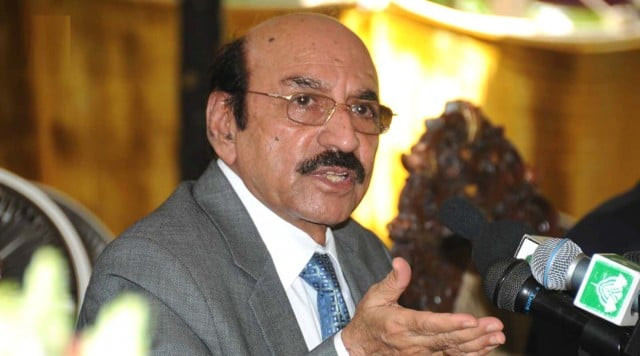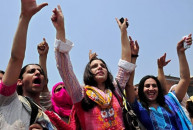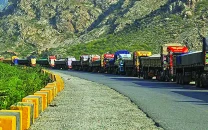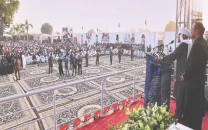Power is top priority, says chief minister
Ten billion rupees have been set aside in the upcoming financial year for coal energy as government's top priority.

Power is top priority, says chief minister
“The last government did not pay attention to this issue which is why the World Bank (WB) discontinued its support,” said Sindh Chief Minister (CM) Syed Qaim Ali Shah at a post-budget briefing on Saturday. According to him, the WB seemed interested once again and was thinking of working on block one of Thar’s coal fields.
“We are trying to approach foreign investors with the help of the federal government,” said the CM, adding that the government has already inked an agreement with Engro Power Generation Limited to work on one of the blocks in Thar. Under the agreement, the exploits of the reserves will be divided with the Sindh government keeping 40 per cent of the share. The company will start the project in August.
The CM also talked of the project assigned to Dr Samar Mubarak, a scientist who is working on converting coal into electricity by gasification. “Around 50 megawatts of electricity will be generated through this project in the coming 18 months,” added Shah.
To accommodate projects, the government will develop infrastructure in the surrounding areas, which residents can also benefit from.
“Roads, electricity and water are needed before launching any project, so the government has earmarked Rs1.1 billion for the provision of these services in Thar,” he said. Meanwhile, an airstrip will also be constructed in Thar by the end of this year.
Water, irrigation and agriculture
After power, comes agriculture. The CM put water and agriculture as the Sindh government’s second priority. Keeping in mind that there is a 40 per cent shortage of water for drinking and irrigation, the government will focus on water conservation, said Shah. He also promised that reservoirs will be constructed on the major canals for this purpose and the government has earmarked Rs4 billion in this regard. These reservoirs will help store rainwater, which will be particularly helpful in drought-like situations, added the CM.
Transportation and other infrastructure
Expressing his theory of development, Shah said that roads and transportation are important for a country’s development, and therefore the government plans to build 11 highways at a cost of Rs109 million.
“Except for the Super and National Highways, the condition of roads is very bad which is why the government has allocated Rs10 billion for developing them,” he said.
Smaller towns will be linked with bigger cities to ensure high connectivity in the province. Industrial estates will be set up around the province’s gas fields, in Qadirpur and Kandhkot among other places, so that transmission losses can be minimised.
These estates will also help redress unemployment, which is rampant in these regions, said the CM.
Education
More than 200 schools across Sindh have closed down, lamented the CM, adding that 30 per cent of these schools had been set up by the government. This, he said, is because donors stopped funding them. However, soft loans have been provided by the World Bank and the European Union to help combat illiteracy.
Not only has the education budget been increased from Rs5.9 billion to Rs7 billion, but an additional Rs6 billion also is being earmarked for boarding schools and comprehensive schools. The government plans to set up 100 comprehensive schools, from class I to class X, by next year. “These schools will [also] provide reading rooms, libraries and museums with boarding facilities,” Shah said.
Health
This year’s budget is focusing on primary healthcare. Acknowledging that many of the basic health units in the province are not functioning, the CM said that the government has increased the health budget to help address this issue.
Health cards have been issued to women under a poverty-reduction programme. So far, 56 such cards have been distributed, which can be used to avail medical facilities of up to Rs 25,000.
A project, Benazir Basti, will be started in different districts under which 400 houses have already been built. These houses comprise two rooms, a courtyard and a kitchen. “We will construct around 10,000 more houses,” said the chief minister.
Published in the Express Tribune, June 13th, 2010.



















COMMENTS
Comments are moderated and generally will be posted if they are on-topic and not abusive.
For more information, please see our Comments FAQ